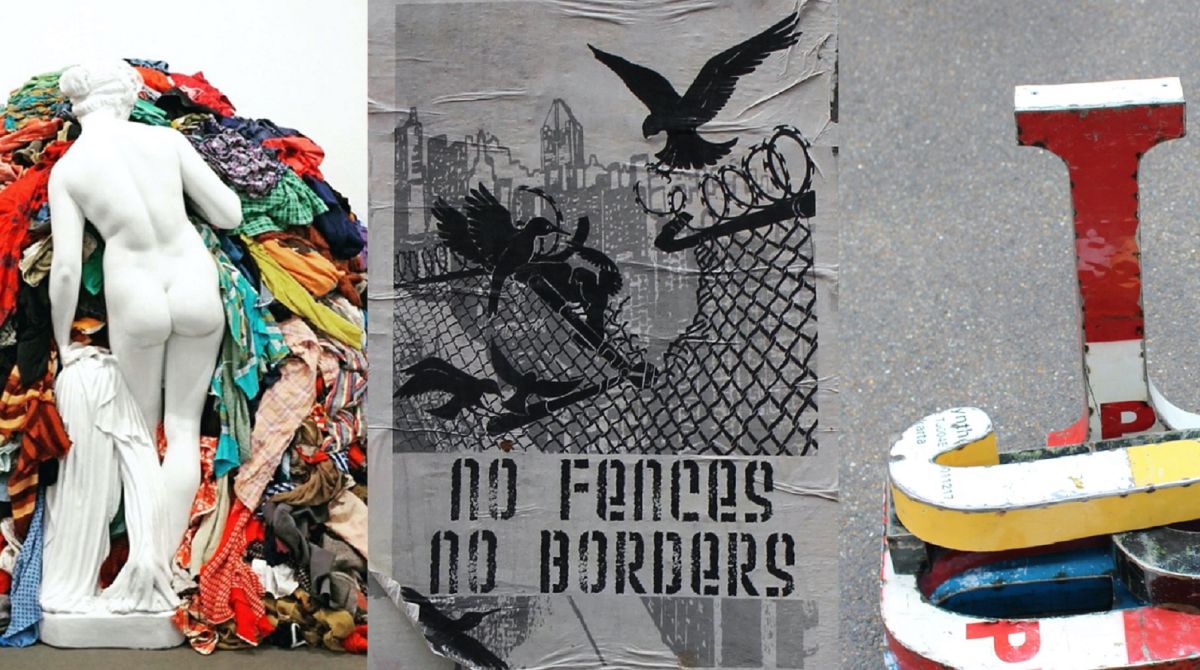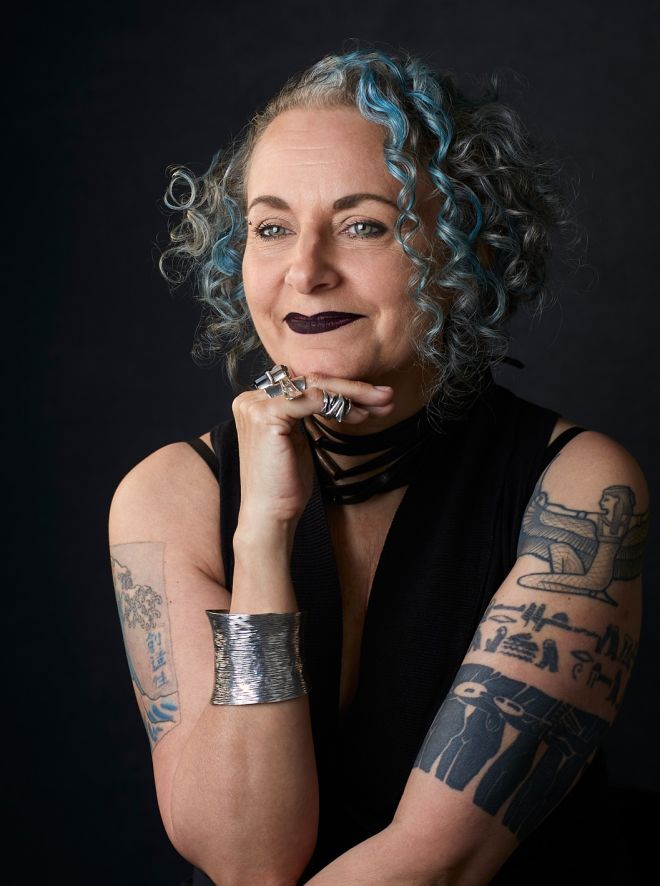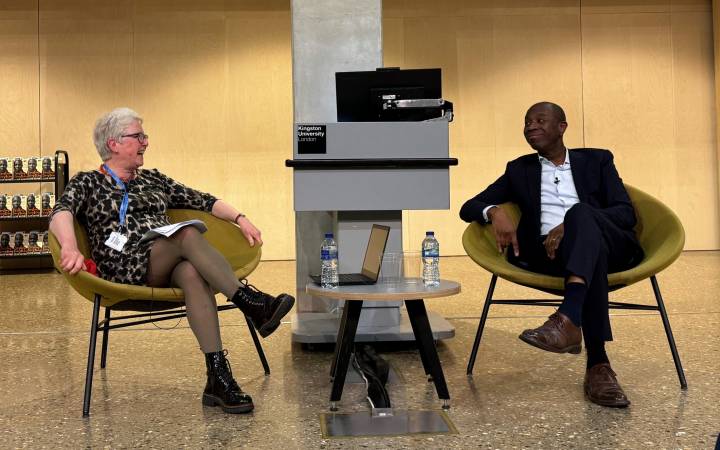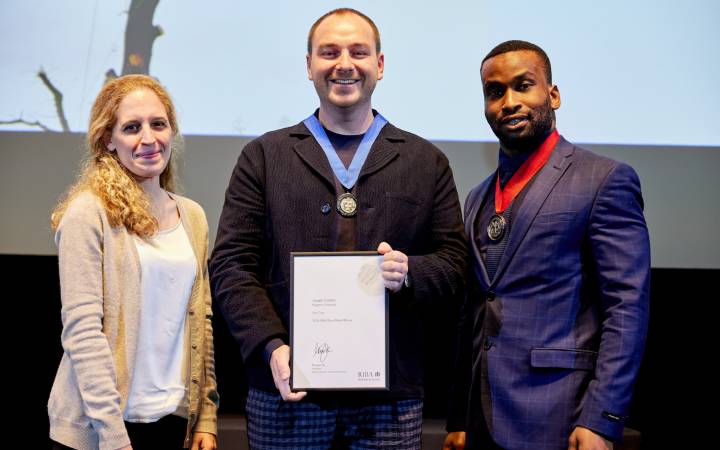New postgraduate degree in sustainable fashion to equip Kingston School of Art students with creative and ethical problem-solving skills
Posted Wednesday 26 January 2022

A new course launched by Kingston School of Art has been designed to increase action around sustainable fashion while addressing ethical issues with solution-led outcomes.
Sustainability has long been a foundational element studied by emerging designers at Kingston School of Art's fashion department, with many tutors and students passionate about the need to combat both waste and inequality within the industry. The new masters degree acknowledges the importance of addressing these issues while producing graduates who will provide solutions.
Helmed by sustainable fashion champion, author and media commentator Dr Sass Brown, the programme sets out to affect systemic change in the fashion industry by offering alternatives to the mainstream system.
Students are invited to choose their area of focus with either a practice, business or a system-design outcome. This creative freedom opens opportunities for exploration and a variety of ways to showcase outputs. From websites and apps, services, exhibitions, installations, and product development – the course intends to investigate the business of design as a problem-solving tool, not a means to produce more stuff.
 "The course is about coming up with solutions, whether they be systemic solutions in fashion or processes that can solve a problem." Course leader Dr Sass Brown."I think sustainability in any industry, but particularly in fashion is absolutely vital. There is no future for our industry without far more sustainable practices," explained course leader Dr Sass Brown. "The course is about coming up with solutions, whether they be systemic solutions in fashion or processes that can solve a problem. Our students will be learning about tangible outcomes that address the unsustainability of the industry."
"The course is about coming up with solutions, whether they be systemic solutions in fashion or processes that can solve a problem." Course leader Dr Sass Brown."I think sustainability in any industry, but particularly in fashion is absolutely vital. There is no future for our industry without far more sustainable practices," explained course leader Dr Sass Brown. "The course is about coming up with solutions, whether they be systemic solutions in fashion or processes that can solve a problem. Our students will be learning about tangible outcomes that address the unsustainability of the industry."
Although the focus of the course lies with fashion business, graduates of business courses are not the only ones encouraged to apply. "It's particularly good for a fashion design graduate to add a sustainable business augmentation. It's also very valuable from an international business perspective, fashion buying, merchandising, marketing and communication." she said.
Waste is one of the many challenges in attaining a sustainable future for the fashion industry, both in reduction of materials used for production or wasted garments at the end of their life and how they are dealt with. "Circularity is much spoken of but very little of it is actually practiced. It's misunderstood to the extent where people think adding one lifetime to an item, by recycling it, is circularity. It's not – circularity means the garment or materials that make-up the garment are used ad infinitum or returned harmlessly to the biosphere," Dr Brown said. "Elimination of waste is massive, it requires a mind-set change to looking at waste as resource, giving a value to the waste in order to incentivise sustainability."
Dr Brown has more than 20 years of experience in the field of sustainability and has many tips to help anyone wanting to be more sustainable and ethical in their fashion decisions. "I would encourage people to support independent designers who are sourcing and producing locally. Buy artisanal handmade work directly from the artisan that made it, and purchasing vintage items reduces carbon footprint hugely." she said. "The average woman has 20 items of clothing in the back of her wardrobe she will never wear – so find a really good local tailor and get it altered so you will wear it."
"Buy less and buy better – quality lasts. There is nothing in my wardrobe that doesn't have a story attached to it. I can tell you where I bought it, why I bought it, and who made it. It creates an emotional connection to clothing that becomes much more valuable because you have memories invested into your outfits," she added.
Dr Brown believes there are reasons to feel positive and that the fashion industry is heading in the right direction. "Recycling capabilities have come a long way in the last few years – mixed fibres couldn't previously be recycled, but now they can. Dr Brown explained. "There are also new kinds of bio-materials that have been developed. There is a much greater focus on craftsmanship and there is an increased emphasis on diversity and representation, and a focus on tackling cultural appropriation. There is still work to be done and I very much hope my students will be part of the solution."
• Find out more about studying Sustainable Fashion: Business and Practices MA at Kingston School of Art.
• Find out more about studying Design at Kingston School of Art.
Contact us
General enquiries:
Journalists only:
- Communications team
Tel: +44 (0)20 8417 3034
Email us



